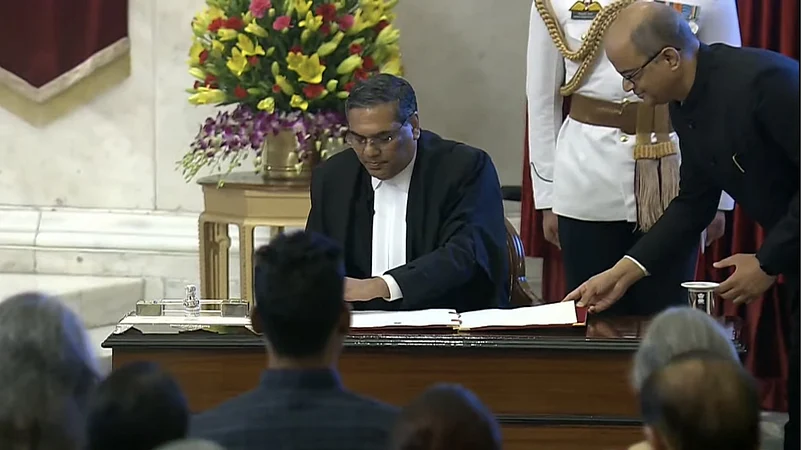Justice Sanjiv Khanna, renowned for his role in several landmark Supreme Court rulings, including scrapping the electoral bonds scheme and upholding the abrogation of Article 370, was sworn in as the 51st Chief Justice of India on Monday.
President Droupadi Murmu administered the oath of office at a ceremony at Rashtrapati Bhavan. Justice Khanna will succeed former CJI DY Chandrachud, who retired on Sunday, and will serve a term until May 13, 2025.
Who Is Justice Sanjiv Khanna?
Education & Family
Justice Sanjiv Khanna was born on May 14, 1960, into a respected family of lawyers in Delhi. He is a third-generation lawyer, the son of former Delhi High Court judge Justice Dev Raj Khanna and the nephew of prominent former apex court judge H R Khanna.
He pursued his law degree at the Campus Law Centre, Delhi University, where he gained a strong academic foundation. This set the stage for his illustrious career in law, continuing the legacy of his family in the legal profession.
Career
Justice Khanna began his legal career after enrolling as an advocate with the Bar Council of Delhi in 1983. He initially practiced at the District Courts in Tis Hazari, before moving to the Delhi High Court, where he built a strong reputation.
He served as the senior standing counsel for the Income Tax Department and was later appointed as the standing counsel (Civil) for the National Capital Territory of Delhi in 2004.
He also served as an additional public prosecutor and argued several high-profile criminal cases.
Justice Khanna was elevated to the Delhi High Court bench in 2005 and served until his appointment to the Supreme Court in 2019.
In addition, Justice Khanna has held significant leadership roles, including serving as the executive chairman of the National Legal Services Authority (NALSA).
Landmark Judgements
Justice Khanna has been part of several landmark judgments in his tenure at the Supreme Court, starting from his elevation on January 18, 2019 when he played a key role in upholding the sanctity of Electronic Voting Machines (EVMs), dismissing concerns about their manipulation and rejecting the demand for a return to paper ballots.
A bench led by him also declared the controversial electoral bonds scheme unconstitutional, affirming the importance of transparency in political funding.
He was part of the five-judge bench that upheld the 2019 abrogation of Article 370, which revoked the special status of Jammu and Kashmir.
One of his notable judgments was granting interim bail to former Delhi Chief Minister Arvind Kejriwal, allowing him to campaign in the 2019 Lok Sabha elections amidst the excise policy scam cases.


























